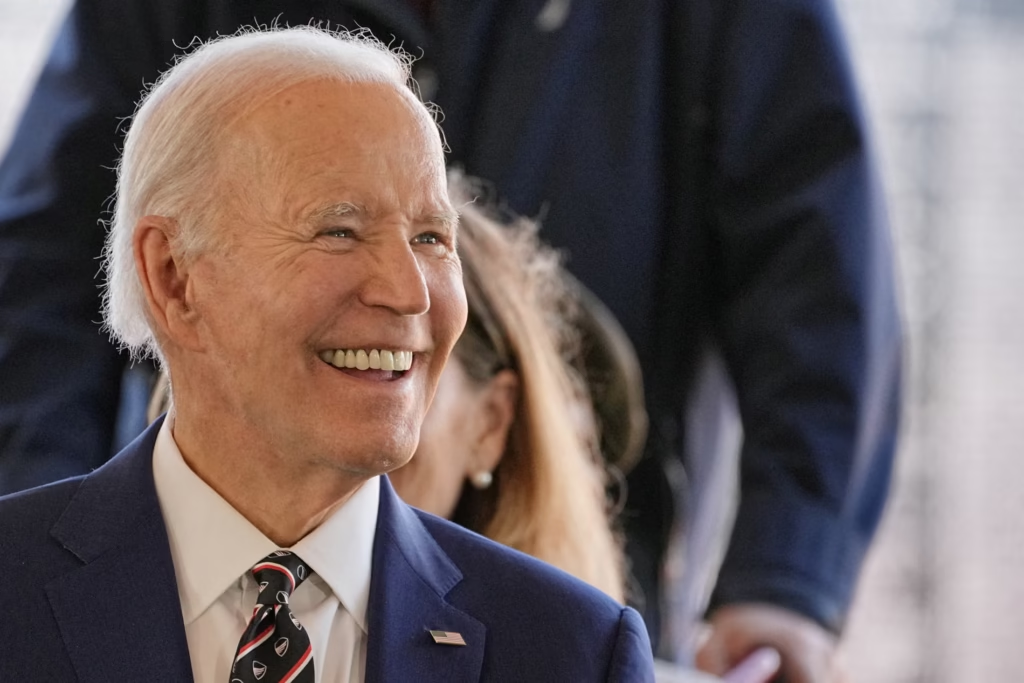Former US president Joe Biden has officially set plans in motion to establish his presidential library in Delaware. The project, which will honor his career in public service, is now entering its first stage: fundraising and site selection.
The Joe and Jill Biden Foundation recently approved a 13-member governance board that will oversee the project. The board features several high-profile figures, including former Secretary of State Antony Blinken, longtime adviser Steve Ricchetti, and well-known Democratic fundraiser Rufus Gifford. Gifford has been named chair of the board and is expected to play a central role in guiding the effort.
Biden’s library team faces the significant task of securing the funds needed to bring the project to life. Traditionally, presidential libraries have relied on donations from wealthy individuals, corporations, and institutions. However, the political environment has shifted. Many long-time Democratic donors have paused contributions, while corporations may be cautious about supporting a project tied to Biden, especially with Donald Trump back in the White House for a second term.
Despite these challenges, Gifford expressed confidence in the board’s ability to meet realistic financial goals. He explained that they would not set targets they could not achieve. The group has not yet finalized a budget, but preparations are underway to develop a plan that aligns with what supporters can provide.
Building a presidential library is no small financial undertaking. Past projects provide insight into the scale of funding required. The George H.W. Bush Library, which opened in 1997, cost about $43 million. Bill Clinton’s library came in at around $165 million. George W. Bush’s team raised $500 million before his center was dedicated. Barack Obama’s foundation has set an unprecedented goal of $1.6 billion. That funding will cover not only the construction of his Chicago presidential center but also ongoing global programs and an endowment for future operations.
By comparison, Biden’s team is still in the earliest phases of planning. Estimates of the final fundraising goal have not yet been made public.
The presidential library will serve as both a museum and an archive. It is expected to highlight Biden’s decades-long political career, including his time in the Senate, his service as vice president under Barack Obama, and his own term as the 46th president.
Supporters see the library as an opportunity to present Biden’s achievements to future generations. It will also serve as an academic and cultural center, offering programs, exhibits, and educational initiatives.
Funding for construction and programming will come entirely from private donations through the nonprofit organization formed by the Bidens. This model follows the precedent set by past presidents, ensuring that taxpayer dollars are not used for these legacy projects.
The decision to locate the library in Delaware reflects Biden’s deep personal and political connection to the state. Having represented Delaware in the Senate for more than three decades, and maintaining his family home there, the location underscores his lifelong bond with the community.
As planning moves forward, the board will need to address several key issues. These include selecting the specific site, designing the facilities, and creating a sustainable fundraising plan. While the timeline for groundbreaking and construction remains uncertain, Biden’s allies are determined to ensure the project succeeds despite the political and financial challenges.
For Biden, the library represents more than just a building. It is a way to cement his legacy, provide a space for learning and reflection, and inspire future leaders. With a strong team of allies leading the effort, the Joe Biden presidential library project in Delaware is beginning to take shape.

